
Study In Canada
With more than 6 lakh students from 150 countries, Canada is undoubtedly the nation that international students want to study in. Indian students find studying in Canada to be quite appealing due to the nation's excellent educational system, diverse population, and exciting job prospects.
Nearly 100,000 study permits were granted in the first four months of 2021, according to official figures from the Canadian High Commission in Delhi, highlighting the fact that Canada is the third most popular study destination for Indian students after the United States and the United Kingdom. In the first half of 2022, over 60,000 Indian students enrolled in Canadian universities.International students can expect a warm welcome from the people and government of Canada, as well as a diverse range of opportunities for both personal and professional development.
Examine the Canadian Educational System
In Canada, the number of foreign students is still rising. After completing their 12th grade, many overseas students come to Canada to study for their bachelor's degree, and many more come for their master's and PGDMs. The practical pedagogy employed in case studies, project work, seminars, and internships guarantees that graduates of Canadian universities holding bachelor's, master's, and MBA degrees are prepared to tackle challenging issues in the workplace. The country's welcoming PR laws and post-study employment possibilities are two further strong arguments for overseas students to study in Canada.Canada has one of the greatest educational systems in the world, and its universities are regarded as providing excellent educations. Canadian universities award degrees that are highly regarded and acknowledged throughout the world. With universities like the University of Toronto, McGill University, University of British Columbia, McMaster University, Universite de Montréal, and the University of Waterloo, Canada is renowned for its top-notch educational system.
Universities in Canada are among the top universities in the world. The top three universities in Canada are listed in the QS World University Rankings 2022.
In addition, Canadian tuition is among the lowest of the English-speaking nations. The entire cost of your education is determined by a number of variables, including the program you select, the city in which you reside, your way of life, and whether you are an undergraduate or graduate student in Canada. Nonetheless, foreign students can apply for undergraduate and graduate scholarships, fellowships, and bursaries.
Indian students may have to pay between CAD3600 and CAD4000 on average per month to study in Canada. Taking on part-time work can help you reduce the expense of your studies in Canada. You can earn 20 hours a week while studying in Canada with a student visa, which also helps you better control your living expenses there.
Canadian universities are regarded as providing excellent education. The practical pedagogy employed in case studies, project work, seminars, and internships guarantees that graduates of Canadian universities holding bachelor's, master's, and MBA degrees are prepared to tackle challenging issues in the workplace.
Considering studying in Canada?
Come study abroad in Canada and embark on a once-in-a-lifetime adventure. Get going right now! To find out more about studying in Germany while abroad, schedule a consultation with our specialist.Here are some reasons
to study in the Canada:
For those who are interested, Canadian universities provide outstanding research opportunities in addition to a vibrant academic environment. Due to their pro-immigration policies, Canadian universities and the government offer substantial undergraduate and graduate study scholarships. It is simple to understand why Canada is one of the most sought-after locations for international study abroad, with its reasonable tuition costs, fantastic employment prospects, and work permit that may be obtained for up to three years following graduation.
While qualifying standards vary among Canadian universities, colleges, and institutes, a common set of prerequisites for a successful application is:
- IELTS band of 6.5 or higher, with no one band falling below a score of 6.
- 70% in Class 12 or above for a bachelor's degree
- 65% or higher in your undergraduate program
- Evidence of enough funding
- health status
- not a history of crime
You will have to submit a direct application to the colleges of your choosing. To apply, you must meet the requirements of the particular course. To study in Canada, you would additionally require a study permit if you are an Indian student. Applying for a study permit is possible with Student Direct Stream. The SDS program speeds up the application process for a student permit. Typically, your study visa is good for the duration of your course plus an additional ninety days. You will need your academic transcripts, a medical certificate of fitness, an appropriate IELTS score, a guaranteed investment certificate of CAD 10,000, a tuition price receipt, and an acceptance letter from a designated learning institute (DLI) in order to apply for SDS.
The cost of education in Canada is lower than in other English-speaking nations. Even while tuition costs vary from university to university and even between programs within the same university, you could expect to pay between CAD 20,000 and CAD 30,000 per year to study in Canada. The cost of living, which includes textbooks, transportation, accommodation, food, entertainment, and other expenses, will run you from CAD 10,000 to CAD $15,000.
Because there are enough institutional and government scholarships available for overseas students, studying in Canada becomes even more inexpensive. You will find it easy to receive scholarships if you have relevant professional experience, significant extracurricular activities, adequate language skills, and respectable GPAs from high school or college.
Universities often state that applicants must have a minimum TOEFL score. Generally speaking, though, applying to reputable US universities requires a TOEFL score of 85 to 100+.
Canada's universities are renowned for offering top-notch instruction taught by internationally renowned scholars. The University of Toronto, University of British Columbia, McGill University, University of Alberta, McMaster University, University of Waterloo, University of Montreal, and other universities are among the ones that students choose.
While admission requirements for MBA programs in Canada may vary depending on specialization, they generally all demand a 3- or 4-year Bachelor's degree from an accredited university, a minimum of two years of work experience, an IELTS score of 6.5 or higher, and a GMAT score. What qualifications are required for Indian students to study for a master's degree in Canada? While admission requirements for various Masters programs at Canadian universities may vary, most of them generally demand a three- to four-year Bachelor's degree from an accredited university, a minimum undergraduate GPA of 3.0, an IELTS score of 6.5 or above, and possible program-specific GRE scores.
Get A Free Registration!
Top Ranked Universities in Canada
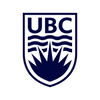
The University of British Columbia

McGill University
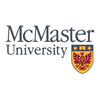
McMaster University

University of Alberta

University of Ottawa
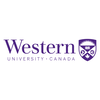
Western University
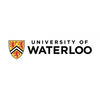
University of Waterloo

University of Calgary
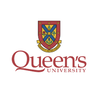




Lorem ipsum dolor sit ametconse ctetur adipisicing elitvolup tatem error sit qui dolorem facilis.